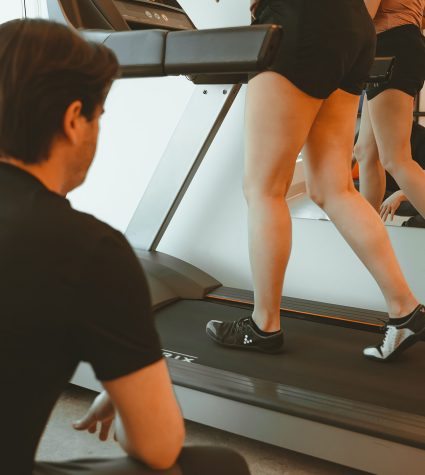Running Physiotherapy


Whether you are a beginner or an advanced runner, the professional running expert can help you adopt a safe practice and improve your performance. Certified by The Running Clinic, the physiotherapist will help you improve your movements and running technique as well as optimize your physical condition. While focusing on injury prevention, physiotherapy can also help reduce the pain and discomfort you face in your daily running routine. Activate your well-being during your runs!
What happens during an appointment?
The therapist with an expertise in running will first proceed with a global evaluation of the runner’s mobility, flexibility, strength and muscular control of the lower extremities. They will then proceed with the evaluation of the running pattern on a treadmill in order to analyze the technique and biomechanics. The physiotherapist will take the time to explain the basic principles and tips of running. In addition, you will receive a personalized exercise program that will help you progress and reach your goals. If necessary, the physiotherapist can also give you advice on the choice of shoes to choose for running.

Who can benefit from a running program?
All runners, of all levels (beginner to advanced) and all ages, can benefit from a running program. This program can be of interest if you want to start running, to resume your sport after an injury, to prevent injury and reduce pain and discomfort, or to improve your performance or consistency in your practice. Whether you want to start running or even to help you prepare for a sporting event, we can definitely help you!What should I bring to my appointment?
Since you will be moving during your running assessment, bring comfortable clothes, your running shoes and a water bottle!
Interesting facts
Did you know that the majority of running injuries are due to training errors, often caused by progressing too quickly? A common injury among beginning runners is tibial periostitis, better known as shin splints. If you are experiencing persistent pain in the tibia, consult your therapist.
Here’s a tip to keep in mind when running! Remember to take short strides and make as little noise as possible when you land. To help you, you can calculate your cadence, which is the number of steps you take in 1 minute. Normally, we want to aim for a cadence of 170 to 180 steps per minute to improve performance and reduce the risk of injury.
To avoid injury, a change in shoe type should be done very progressively. Moreover, a more minimalist shoe would tend to improve running performance. Talk to your therapist about it!






